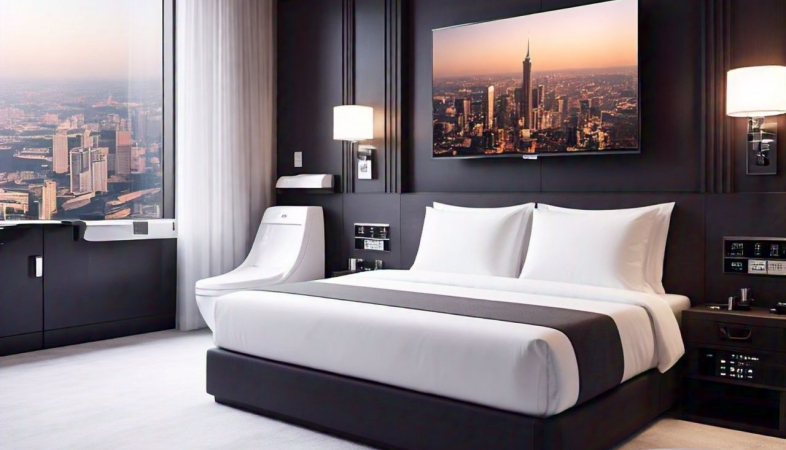Minimalist Hotel Room Organization for Maximum Guest Satisfaction
This approach focuses on offering a simple, organized environment that promotes a sense of calm and relaxation.
In the world of hospitality, guest satisfaction is the
ultimate goal, and creating an environment where guests feel relaxed,
comfortable, and at ease is key to achieving this. One increasingly popular
trend that enhances the guest experience is minimalist hotel room organization.
Minimalism, characterized by clean lines, functional design, and a decluttered
space, has become a sought-after aesthetic in hotel room design. This approach
focuses on offering a simple, organized environment that promotes a sense of
calm and relaxation. By stripping away unnecessary items and emphasizing
functionality, minimalist hotel rooms not only look more appealing but also foster
a tranquil atmosphere that enhances guest satisfaction.
One of the primary benefits of minimalist hotel room organization is the reduction of clutter. A cluttered room can feel overwhelming and stressful, leading to a less enjoyable experience for guests. On the other hand, minimalist rooms prioritize clean, open spaces that are free of excessive decorations, furniture, and accessories. This creates a more calming and peaceful environment where guests can unwind without distractions. By strategically organizing the room, hotel designers can ensure that every item serves a purpose, contributing to both the room’s aesthetics and functionality. A well-organized room with minimal distractions allows guests to feel at ease and focused on relaxation, rather than on navigating through a jumble of belongings.
Minimalist hotel rooms are designed with efficiency in mind, ensuring that guests have everything they need without the excess. Every element in a minimalist room is carefully curated to provide maximum functionality with the least amount of space. For example, instead of bulky furniture, hotels may opt for sleek, multifunctional pieces such as wall-mounted shelves, compact desks, and foldable chairs. These space-saving solutions allow the room to feel more expansive, offering guests more freedom of movement while still providing all the necessary amenities. Smart storage options, such as hidden drawers and under-bed compartments, are also commonly used in minimalist room designs. These features allow guests to store their belongings out of sight, contributing to a tidy and uncluttered space.
Minimalism also extends to the décor and color schemes used in hotel rooms. Neutral tones such as whites, greys, and beiges are often favored in minimalist designs because they create a serene atmosphere and promote relaxation. Bold or distracting colors are kept to a minimum, allowing guests to focus on the calming surroundings. However, minimalist décor does not mean that the room lacks personality or style. Subtle accents, such as simple artwork, carefully placed plants, or elegant lighting fixtures, can still add character and warmth to the room without overwhelming the senses. By maintaining a balance between simplicity and style, minimalist hotel rooms can provide a visually pleasing experience that guests find both modern and inviting.
An essential aspect of minimalist hotel room organization is the emphasis on high-quality, essential items. In a minimalist room, each item is chosen for its functionality, durability, and aesthetic appeal. Instead of an array of unnecessary objects, the room focuses on offering premium essentials that guests will truly appreciate. This includes high-quality linens, a comfortable mattress, soft lighting, and carefully selected toiletries. The goal is to create a space where guests can enjoy a restful, luxurious experience without feeling overburdened by an abundance of possessions. The focus on quality over quantity enhances the guest experience by providing a comfortable, well-thought-out environment that promotes a restful stay.
Minimalist hotel room organization has the potential to significantly enhance guest satisfaction by promoting a sense of calm, comfort, and efficiency. By reducing clutter, emphasizing high-quality essentials, and incorporating thoughtful design, hotels can create an environment that supports relaxation and rejuvenation. The minimalist approach not only improves the aesthetics of the room but also aligns with sustainability goals, offering a more environmentally friendly and guest-conscious experience. As guests continue to seek tranquility and simplicity during their travels, minimalist hotel room organization is poised to become a defining trend in hospitality design, helping hotels to create spaces that truly enhance the overall guest experience.
.png)




























